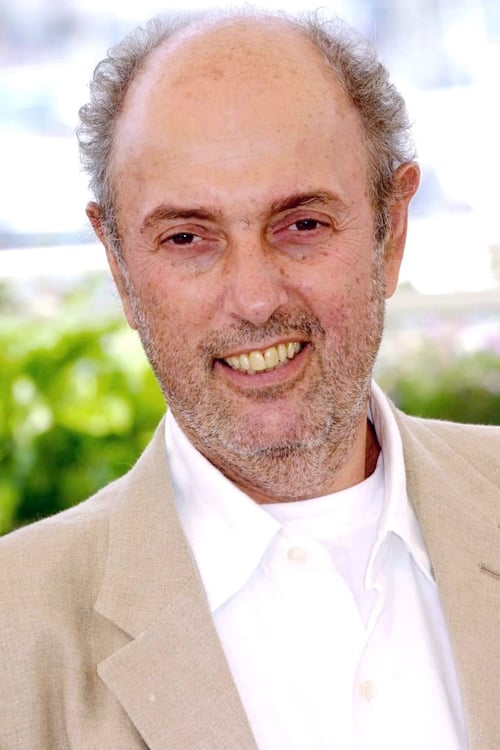Héctor Babenco
出生 : 1946-02-07, Buenos Aires, Argentina
死亡 : 2016-07-14
略歴
Héctor Eduardo Babenco (born in Buenos Aires but raised in Mar del Plata) was an Argentine-born Brazilian film director, screenwriter, producer and actor. He has worked in several countries including Argentina, Brazil and the United States.
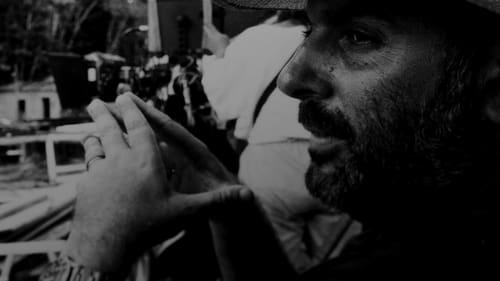
Self
Besieged by cancer and nearing the end, the genius Argentine-Brazilian filmmaker Héctor Babenco (1946-2016) asks Bárbara Paz, his wife, for one last wish: to be the protagonist of his own death.

Hector Babenco
Dr. Drauzio Varella has a hypothetical conversation with his friend Hector Babenco, a filmmaker who died in 2016. The importance of friendship is addressed in the documentary based on the death of a friend — and shows the decrease in happiness and the irreplaceable void left by this game.

Self
A chronicle of the personal life and public career of the celebrated artist and filmmaker Julian Schnabel.

Writer
Diego is a film director who, when he is told that he has a malignant disease which could be fatal, marries his girlfriend of many years, says goodbye to his friends and begins a routine of long days of treatment in hospital. While learning to live with the pain and also conversing with death, he meets a Hindu boy who is a fellow patient and who becomes his friend. But one day the boy disappears. Diego is discharged, but his life has changed forever. His marriage fails and, living alone, he begins to wonder whether he may in fact be dying and no one has told him. He tries to find out what happened to his Hindu friend, and eventually meets another woman...

Director
Diego is a film director who, when he is told that he has a malignant disease which could be fatal, marries his girlfriend of many years, says goodbye to his friends and begins a routine of long days of treatment in hospital. While learning to live with the pain and also conversing with death, he meets a Hindu boy who is a fellow patient and who becomes his friend. But one day the boy disappears. Diego is discharged, but his life has changed forever. His marriage fails and, living alone, he begins to wonder whether he may in fact be dying and no one has told him. He tries to find out what happened to his Hindu friend, and eventually meets another woman...

An abandoned tumbledown theater in the outback of Paraíba state is the initial setting of a film about cinema, which explores the testimonials of the novelist and playwright Ariano Suassuna and other filmmakers such as Ruy Guerra, Julio Bressane, Ken Loach, Andrzej Wajda, Karim Ainouz, José Padilha, Hector Babenco, Vilmos Zsigmond, Béla Tarr, Gus Van Sant and Jia Zhangke. They all respond to two basic questions: why do they make movies and why do they serve the seventh art. The filmmakers share their thoughts about time, narrative, rhythm, light, movement, the meaning of tragedy, the audience‘s desires and the boundaries with other forms of art.
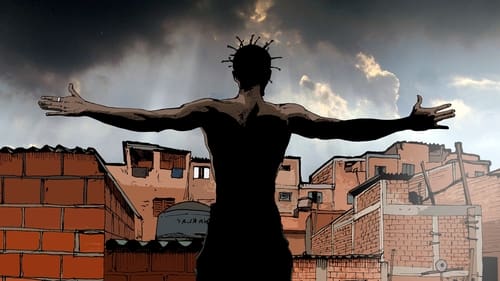
Self
Mauro Mateus dos Santos was known by another name: Sabotage. Growing up amidst poverty in São Paulo, the musician, who became a legend after his death, is one of the most important names in national rap.
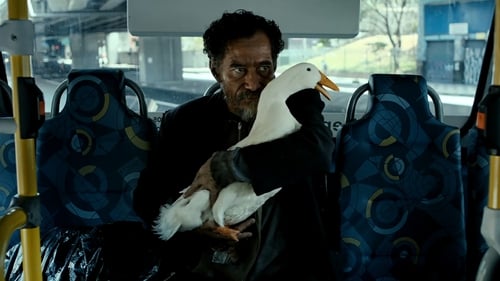
Writer
The first of four installments in the groundbreaking Heartbeat of the World anthology film series. Comprised of several short films by some of the world's most exciting directors, Words with Gods follows the theme of religion - specifically as it relates to an individual's relationship with his/her god or gods...or the lack thereof. In Words with Gods, each director recounts a narrative centered around human fragility, as well as environmental and cultural crises involving specific religions with which each has a personal relationship; including early Aboriginal Spirituality, Umbanda, Buddhism, the Abrahamic faiths, Hinduism, and Atheism. An animated sequence by Mexican animator Maribel Martinez is woven through each of the film segments, with each segment narratively connected as a feature-length film.

Director
The first of four installments in the groundbreaking Heartbeat of the World anthology film series. Comprised of several short films by some of the world's most exciting directors, Words with Gods follows the theme of religion - specifically as it relates to an individual's relationship with his/her god or gods...or the lack thereof. In Words with Gods, each director recounts a narrative centered around human fragility, as well as environmental and cultural crises involving specific religions with which each has a personal relationship; including early Aboriginal Spirituality, Umbanda, Buddhism, the Abrahamic faiths, Hinduism, and Atheism. An animated sequence by Mexican animator Maribel Martinez is woven through each of the film segments, with each segment narratively connected as a feature-length film.

Héctor Babenco
Three metropolitan stories entwine in São Paulo. Would-be actress Marina arrives in the city looking for independence, falls madly in love with Justine, a bisexual rock singer, and is swept up into her wild, edgy lifestyle. Marina shares a flat on Avenida Paulista with Suzana, a mysterious transsexual lawyer who begins a relationship with a male colleague who is unaware of her condition. Jay lives a few floors above them. He is a frustrated writer trying to give a meaning to his life by idealizing a stunningly beautiful prostitute, whom he transforms into a sort of muse. Following the frenetic pace of the city, the three "Paulista" characters will experience the euphoria of passion and its downside.
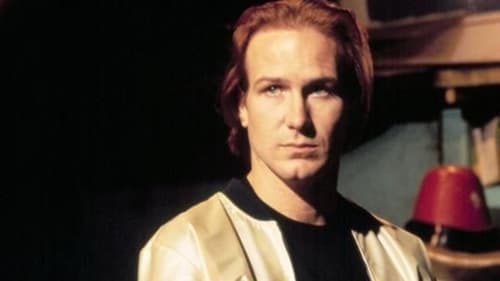
Himself
Rare documents and details of the film's story. From its initial option to its critical reception and legacy. Director David Weisman, who also produced "Kiss of the Spider Woman", comes off as rightful creative force behind the production, as it was his true passion. Very detailed comments from all the participants, from the author of the book to the lawyer for the production company, the actors, director, writers, producer, and crew members.
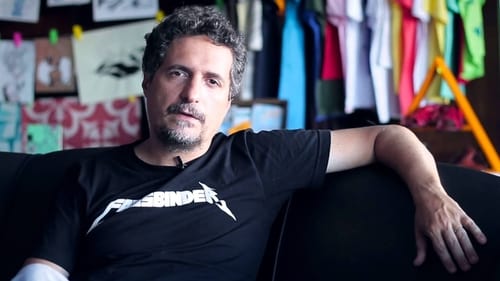
Self
Seventy critics and filmmakers discuss cinema around the conflict between the artist and the observer, the creator and the critic. Between 1998 and 2007, Kléber Mendonça Filho recorded testimonies about this relationship in Brazil, the United States and Europe, based on his experience as a critic.

Self
A tribute documentary on Fernando Ramos da Silva, the famous child star of the acclaimed film by Hector Babenco, "Pixote, a Lei do Mais Fraco" (1981). 20 years after his assassination by the police, his co-stars and Babenco talk about Fernando's contributions to the film, his troubled life when his acting works didn't took off as expected (since he was typecast) and which made him turn back to his past life of poverty and crimes. The project also presents that film's influence to many directors and artists around the world.
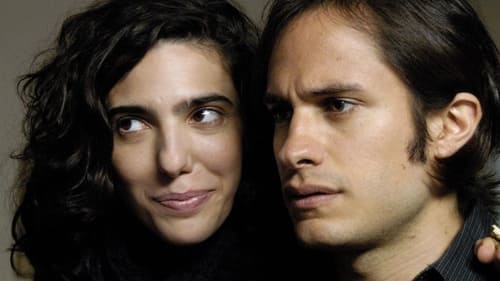
Proyeccionista
After 12 years, Sofía and Rímini decided to separate. While Rímini finds it easy to move on and start a new life, Sofía stays stuck in the past and constantly harasses him. She reappears again and again on Rímini's horizon to reconquer him, torture him or redeem him.

Writer
After 12 years, Sofía and Rímini decided to separate. While Rímini finds it easy to move on and start a new life, Sofía stays stuck in the past and constantly harasses him. She reappears again and again on Rímini's horizon to reconquer him, torture him or redeem him.

Director
After 12 years, Sofía and Rímini decided to separate. While Rímini finds it easy to move on and start a new life, Sofía stays stuck in the past and constantly harasses him. She reappears again and again on Rímini's horizon to reconquer him, torture him or redeem him.

This revealing documentary about the Brazilian sex symbol goes deep into her career as she pivoted from dancer to singer to adult film star.

Screenplay
When a doctor decides to carry out an AIDS prevention program inside Latin America’s largest prison: the Casa de Detenção de São Paulo - Carandiru, he discovers the victim of one of the darkest days in Brazilian History when the State of São Paulo’s Military Police, with the excuse for law enforcement, shot to death 111 people. Based on real facts and on the book written by Dráuzio Varella.

Producer
When a doctor decides to carry out an AIDS prevention program inside Latin America’s largest prison: the Casa de Detenção de São Paulo - Carandiru, he discovers the victim of one of the darkest days in Brazilian History when the State of São Paulo’s Military Police, with the excuse for law enforcement, shot to death 111 people. Based on real facts and on the book written by Dráuzio Varella.

Director
When a doctor decides to carry out an AIDS prevention program inside Latin America’s largest prison: the Casa de Detenção de São Paulo - Carandiru, he discovers the victim of one of the darkest days in Brazilian History when the State of São Paulo’s Military Police, with the excuse for law enforcement, shot to death 111 people. Based on real facts and on the book written by Dráuzio Varella.

Virgilio Pinera
故国で弾圧を受けアメリカに亡命したものの、のちに自殺したキューバの作家レイナルド・アレナスの生涯をジュリアン・シュナーベル監督が映画化。アカデミー賞にもノミネートされた感動作。

Thanks
Fictional story based on Sarah Bernhard's visit to Brazil in 1905. The actress, experiencing a personal and professional crisis at the time, is induced by her personal Brazilian maid, Amélia, to make a performance in Rio de Janeiro. After arriving, she is forced to stand the company of Amélia's exotic sisters.

Danilo Danuzzi
In this witty drama, the future of art is examined from two vantage points: the years 1699 and 1999. Roland is an avant-garde artist in Venice, California whose sister, Countess Camilla Volta, lives on their family's estate in Venice, Italy. Their father, the Viscount, is near death, and he announces, to the disappointment of both his offspring, that his home and priceless collection of art have been bequeathed to the Italian government.

Producer
Living with his parents, 17-year-old Juan hangs out with several intellectuals who would like to photograph the human soul. The girlfriend of the group's financier is Ana, and Juan is attracted to her, despite the knowledge that she spent two years at a clinic because she was "crazy." Juan sees Ana when he can and trains as a door-to-door salesman, but when the German photographer on the soul project gives him a viewfinder, it changes his life, putting him on the path to his later success as a Hollywood director.

Writer
Living with his parents, 17-year-old Juan hangs out with several intellectuals who would like to photograph the human soul. The girlfriend of the group's financier is Ana, and Juan is attracted to her, despite the knowledge that she spent two years at a clinic because she was "crazy." Juan sees Ana when he can and trains as a door-to-door salesman, but when the German photographer on the soul project gives him a viewfinder, it changes his life, putting him on the path to his later success as a Hollywood director.

Director
Living with his parents, 17-year-old Juan hangs out with several intellectuals who would like to photograph the human soul. The girlfriend of the group's financier is Ana, and Juan is attracted to her, despite the knowledge that she spent two years at a clinic because she was "crazy." Juan sees Ana when he can and trains as a door-to-door salesman, but when the German photographer on the soul project gives him a viewfinder, it changes his life, putting him on the path to his later success as a Hollywood director.

Screenplay
Martin and Hazel Quarrier are small-town fundamentalist missionaries sent to the jungles of South America to convert the Indians. Their remote mission was previously run by the Catholics, before the natives murdered them all. They are sent by the pompous Leslie Huben, who runs the missionary effort in the area but who seems more concerned about competing with his Catholic 'rivals' than in the Indians themselves. Hazel is terrified of the Indians while Martin is fascinated. Soon American pilot Lewis Moon joins the Indian tribe but is attracted by Leslie's young wife, Andy. Can the interaction of these characters and cultures, and the advancing bulldozers of civilization, avoid disaster?

Director
Martin and Hazel Quarrier are small-town fundamentalist missionaries sent to the jungles of South America to convert the Indians. Their remote mission was previously run by the Catholics, before the natives murdered them all. They are sent by the pompous Leslie Huben, who runs the missionary effort in the area but who seems more concerned about competing with his Catholic 'rivals' than in the Indians themselves. Hazel is terrified of the Indians while Martin is fascinated. Soon American pilot Lewis Moon joins the Indian tribe but is attracted by Leslie's young wife, Andy. Can the interaction of these characters and cultures, and the advancing bulldozers of civilization, avoid disaster?
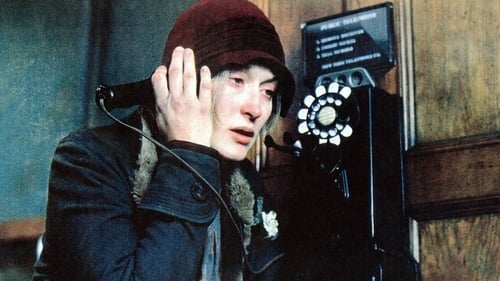
Director
Albany, New York, Halloween, 1938. Francis Phelan and Helen Archer are bums, back in their birth city. She was a singer on the radio, he a major league pitcher. Death surrounds them: she's sick, a pal has cancer, he digs graves at the cemetery and visits the grave of his infant son whom he dropped; visions of his past haunt him, including ghosts of two men he killed. That night, out drinking, Helen tries to sing at a bar. Next day, Fran visits his wife and children and meets a grandson. He could stay, but decides it's not for him. Helen gets their things out of storage and finds a hotel. Amidst their mistakes and dereliction, the film explores their code of fairness and loyalty.
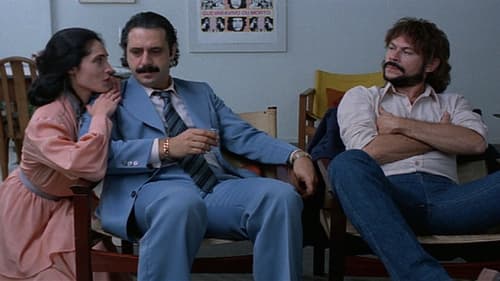
Producer
The story of two couples - Xico and Olga, Tuca and Dina - through 20 years of friendship, from adolescent dreams to maturity frustrations. They meet in a small town in the State of São Paulo, but one of the couples decides to try their luck in the big city. As background, the political events in the 60's and 70's, and how they affect their lives.
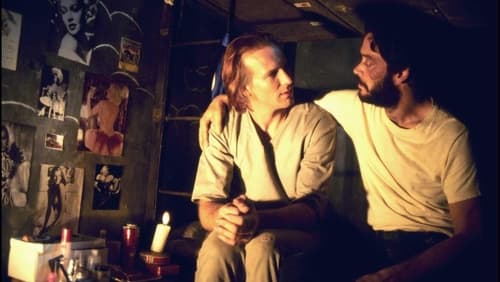
Director
ブエノスアイレスの刑務所にテロリストのヴァレンティンとホモセクシュアルのモリーナは同じ監房に入れられた。二人の間に恋愛感情が芽生えるが……。社会から断絶した二人の男の愛を描いた、ウィリアム・ハート主演の衝撃作。
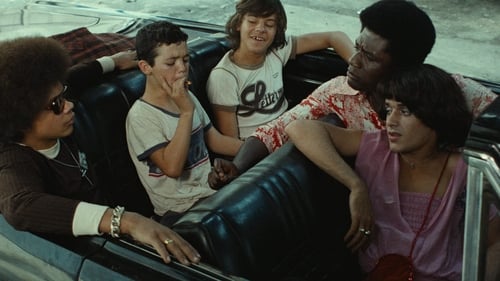
Producer
10-year-old Pixote endures torture, degradation, and corruption at a local youth detention center where two of its members are murdered by policemen who frame Lilica, a 17-year-old trans hustler. Pixote helps Lilica and three other boys escape and they start to make their living by a life of crime which only escalates to more violence and death.

Screenplay
10-year-old Pixote endures torture, degradation, and corruption at a local youth detention center where two of its members are murdered by policemen who frame Lilica, a 17-year-old trans hustler. Pixote helps Lilica and three other boys escape and they start to make their living by a life of crime which only escalates to more violence and death.

Director
10-year-old Pixote endures torture, degradation, and corruption at a local youth detention center where two of its members are murdered by policemen who frame Lilica, a 17-year-old trans hustler. Pixote helps Lilica and three other boys escape and they start to make their living by a life of crime which only escalates to more violence and death.

Writer
History of a famous Brazilian bandit of the early seventies and his fight against a death squad.

Director
History of a famous Brazilian bandit of the early seventies and his fight against a death squad.

Story
Sought after by several reputable women, a bohemian becomes obsessed with a prostitute.

Producer
Sought after by several reputable women, a bohemian becomes obsessed with a prostitute.

Director
Sought after by several reputable women, a bohemian becomes obsessed with a prostitute.

Executive Producer
Documentary about race car driver Emerson Fittipaldi

Writer
Documentary about race car driver Emerson Fittipaldi

Director
Documentary about race car driver Emerson Fittipaldi

Director
In a tragic example of life imitating art, Babenco returned to São Paolo to shoot this prologue to “Pixote” which examines the true story of Fernando Ramos da Silva, the lead actor from “Pixote,” and the circumstances of his death at the age of 19, killed by the police under dubious circumstances. - from Yahoo
